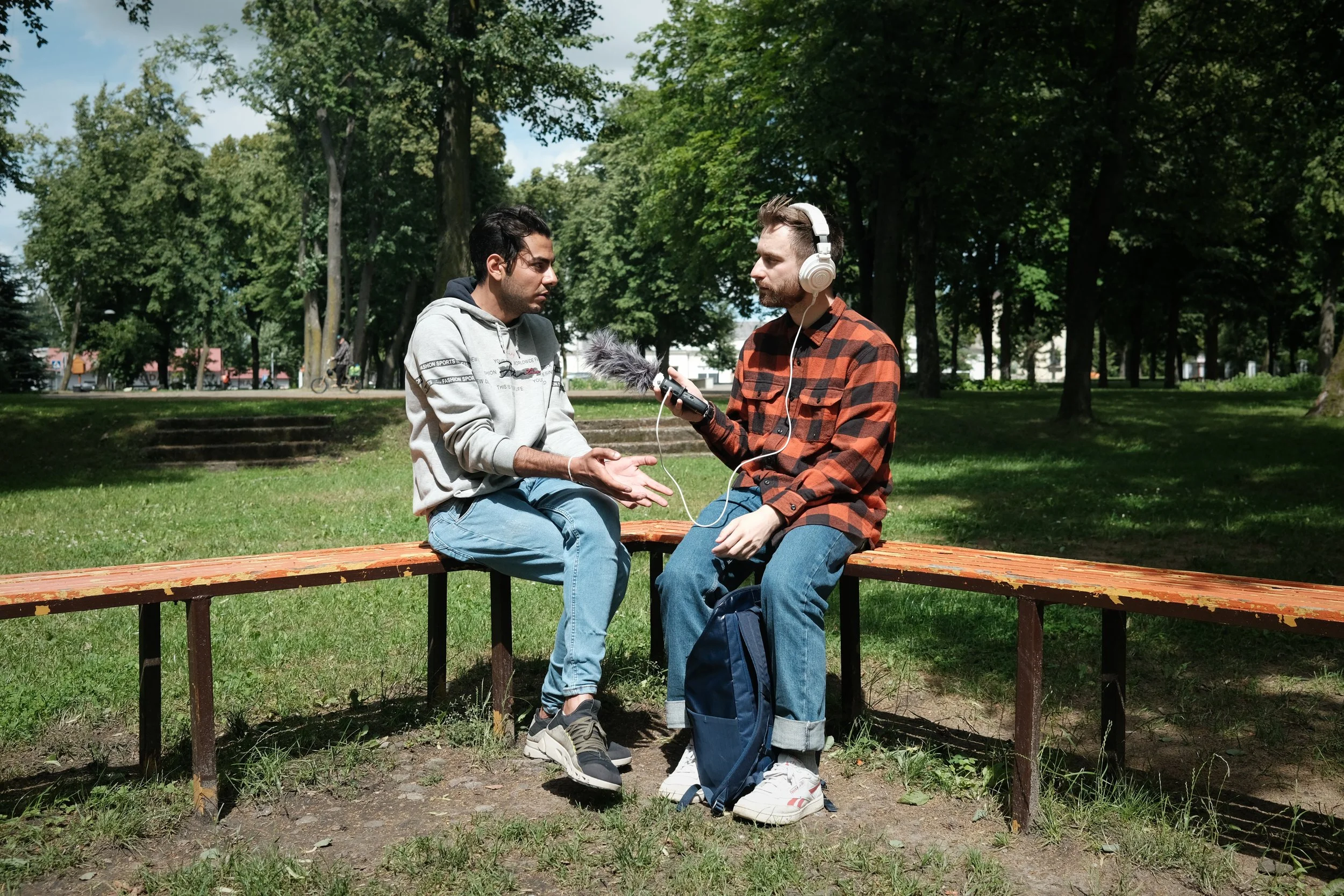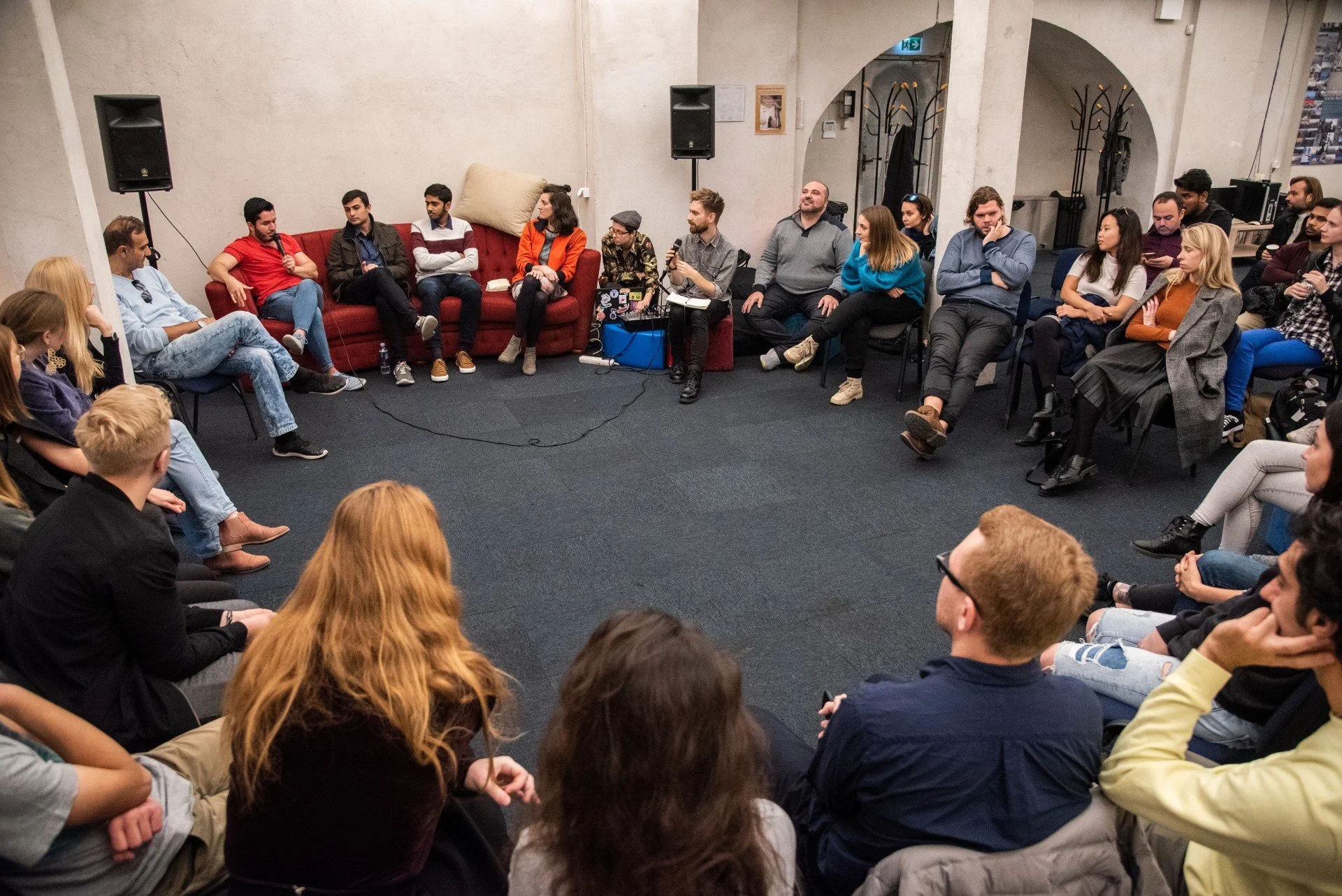My work principles
How do I see journalism and my role in it.
Interviewing Sajjad, an Iraqi asylum seeker in Kybartai, a border town in Lithuania. By Karolis Pilypas Liutkevicius, NARA
The first time I felt the power of journalism was when I was a teenager in Lithuania, spending too much time on video games. It was the early 2000s, a time when you could subscribe to a print magazine about the digital world.
And that is what I did. The magazine was called Kompiuterija and I would read it cover to cover.
The editor of Kompiuterija was encouraging readers to submit their own stories to the magazine. I wrote a review of Grand Theft Auto: Vice City and, to my surprise, it was published. The feeling of seeing your article on paper was one of a kind. Getting paid for my work didn’t hurt either. Especially when you are 14.
But the most important thing was that journalism connected me with other people. In the next issue, someone wrote an answer to my review. We, the readers of the magazine, were talking, even though we had never met each other.
I felt a similar sensation many times, for example, when hosting a radio show alone in a Lithuanian National Radio studio, knowing that there were many people out there who were listening. I just didn’t see them. Or when doing one-on-one interviews that would later be read by those who are not in the room with you.
Of course, there are so many ways for people to connect now. Journalism is definitely not the easiest one to do that. It’s almost archaic.
But I like it, because the journalistic way of communicating is different. It’s more enlightening. When journalism is done right, people become more fulfilled versions of themselves. The journalistic way of talking allows me to ask questions I would otherwise struggle to ask. And why would those people talk to me anyway?
Journalistic practice allows me and my interviewees to talk about topics that society struggles to uncover, such as mental health, inequality or sexual misconduct. In “normal” life you rarely start conversations with people about such topics. In the journalistic approach, you can do it as long as you gain people’s trust.
So this is what journalism is for me: it is a way to make new, more informed and more honest connections. I see my job as a facilitator of this process. That is my role in society, that is why I am useful.
Introducing 'A Home Far Fom Home', live podcast discussion about being a foreigner in Lithuania. By Severina Venckute, NARA
However, there are certain guiding principles that I follow and that are worth knowing when engaging with my work. Let me share them with you.
– My focus is on those who have less power.
It doesn’t mean that they are always right. But I don’t want to be a journalist who is serving only the elites. There are many other industries that do that.
– I believe that we have enough material and mental resources for our societies to flourish.
But we are failing to use them. Uncovering the “why” and “how” of that is one of the goals of my work.
– Social media is a polarising and tiring place. Yet I am dependent on it to reach readers and listeners.
This tension is at the heart of my work and I am looking for ways to escape it.
– My worldview is shaped by Lithuania, the country I was born in and where I have been living for more than 30 years.
Even in my international coverage, the worldview from Lithuania might be present and I may not be aware of it.
In my work I tend to criticise many aspects of today’s Lithuania, including its conservative political class and our inability to deal with the country’s history. But my criticism is an act of good faith. I want our society to grow. I love Lithuania, that is why I criticise it.
– I feel that my worldview is limited to European and American spaces.
I aim to engage more with Middle Eastern, African, Asian and Latin cultures. I know that my lifetime won’t be enough to do that.
– I think that the greatest issue for our generation is the climate crisis.
The shadow of climate catastrophe is always at the back of my mind as I think about my future.
– I understand that the change that I, as a single journalist, can achieve, is very small.
And yet I also know that I can sometimes manage to reach people and achieve true connections. That makes it worth doing.
Karolis Vysniauskas, September 2022.


